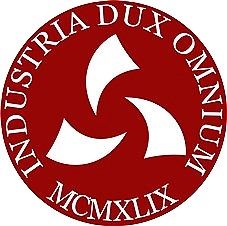
The Department of Industrial Business and Logistics is one of the oldest departments at University of Economics – Varna. It was founded in 1953 as a result of restructuring the existing Faculty of Economic and Social Sciences. A degree programme in Economics of the Industry had already been established in 1949, so the development of the new department came naturally.
The Department of Industrial Business and Logistics runs two undergraduate degree programmes: BSc Industrial Business and Entrepreneurship and BSc Logistics, and two graduate degree programmes: MSc Corporate Business and Management and MSc Logistics Management.
The curricula of these degree programmes have been specifically and constantly updated to meet the demands of businesses and economic realities. Training organization and methods are continually enhanced to add more hands-on emphasis, with students benefiting more from their work placements. The highest requirements and criteria are upheld to sustain quality education for students and maintain top qualification for faculty members.
Ever since its foundation, the Department of Industrial Business and Logistics has trained over 12,500 professionals. Graduates have all had successful careers as applied and analytical professionals; operating, functional and line managers in small and medium-sized enterprises as well as in large industrial companies. They are supply chain managers, bank managers, investment and fund managers, consulting managers, business incubator managers, cluster managers, business network managers, and dealers and brokers at stock exchanges and commodity markets, representatives and distributors, entrepreneurs and self-employed business people, etc.
Faculty members do thorough research in contemporary academic areas such as: industrial management, marketing, logistics, price formation, competitiveness and innovation in industrial companies, human resources management, corporate social responsibility, company culture, small enterprises management, entrepreneurship, etc.
By doing research in these fields, faculty members contribute to the solution of crucial economic problems. As a result, the department has successfully collaborated for years with corporate and public organizations, much to the benefit of all stakeholders. Faculty members offer a wide range of consulting services; they are also an integral part of national professional councils. Faculty members are also proactive in regional, district and municipal organisations, contributing to the analysis and planning of these organisations development policies and strategies. Non-governmental organizations have also benefited from the contribution of faculty members.
